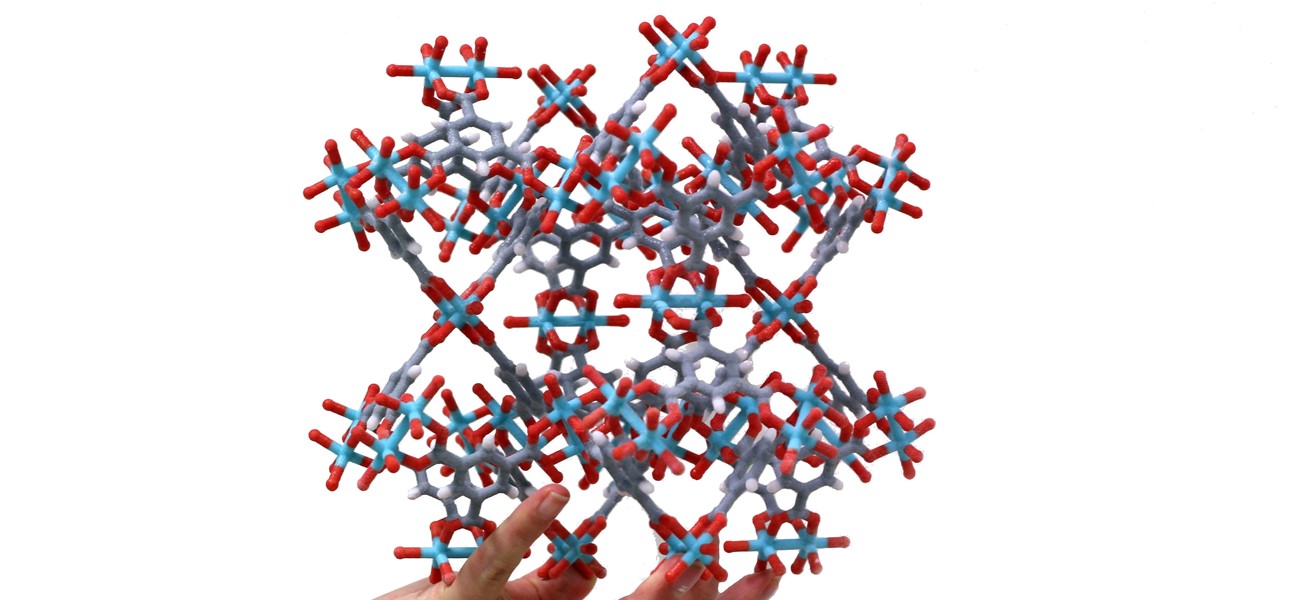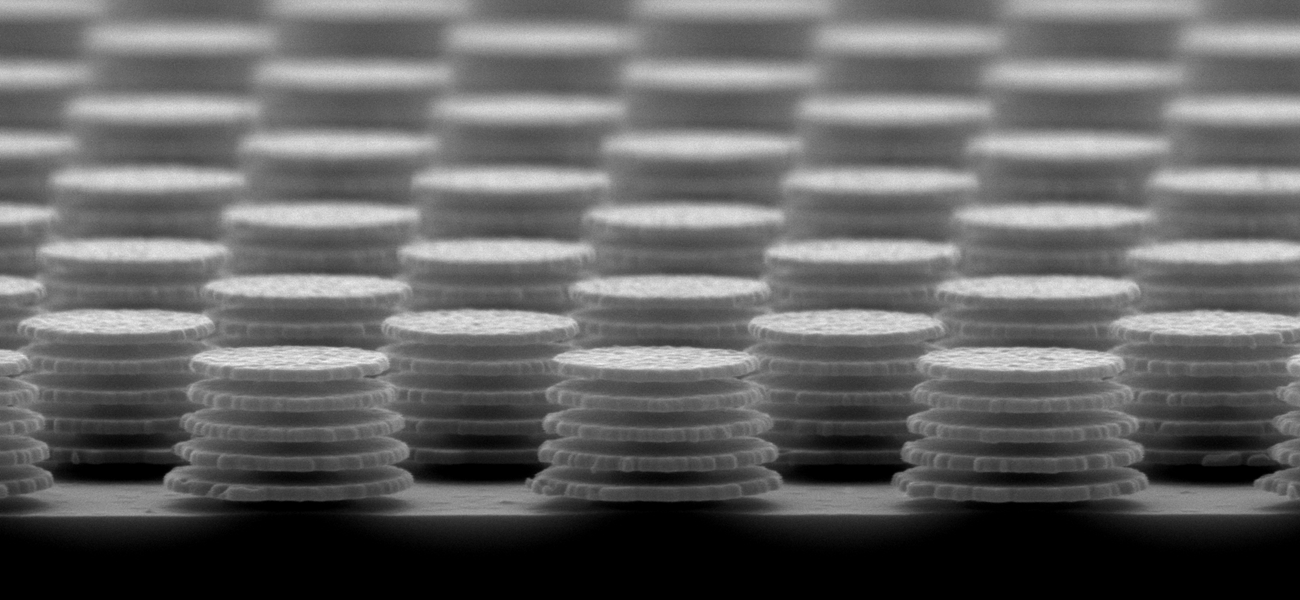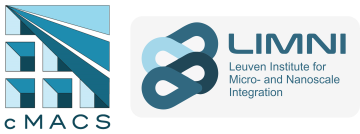Ameloot Group
Manipulating Porous Matter
Welcome to the Ameloot Group Website!
We are a materials chemistry group that thrives on crossing traditional subject boundaries.
As part of the KU Leuven Centre for Membrane Separations, Adsorption, Catalysis, and Spectroscopy and the Department of Microbial and Molecular Systems, we study different flavors of porous matter. Our research is focused on enabling applications based on these materials through a fundamental understanding of their formation processes and properties. In doing so, we aim to build bridges between the established use of porous materials, as adsorbents and catalysts, and the worlds of microelectronics, diagnostics, and additive manufacturing.
The Ameloot Group is one of the founding members of the Leuven Institute for Micro- and Nanoscale Integration (LIMNI). The focus points of LIMNI are (nano)material characterization, bio-nanosystems, nanoelectronics, and physical micro- and nanosystems.
Our labs are located in the state-of-the-art Leuven Chem&Tech and NanoCenter facilities, completed in 2015. Have a look at our campus via the KU Leuven virtual tour.
Latest News
Announcements

Flanders’ FOOD highlights our Acid Alert technology
Flanders’ FOOD recently published an article featuring Acid Alert, a new se…

An receives best oral presentation award @YBMRS
At the 21th edition of the Young Belgian Magnetic Resonance Symposium, An w…

From Nobel price-winning MOFs to molecular speed cameras: C2W profiles the Ameloot Group
In the latest issue of C2W, the Ameloot Group is featured in not one, but t…

Next stop for our Robbie the Scientist kits: PXL STEM Academy
Our Robbie the Scientist kits made their way to the PXL STEM Academy, where…

Our molecular speed camera featured in EOS Wetenschap
EOS Wetenschap has published an interview covering our recent work on our '…
Group News

Navid and Ali join our group
We welcome a new postdoc and Ph.D. student to the Ameloot Group!Navid joins…

Seven MSc students strengthen our group this academic year
Seven bioscience engineering students strengthen the team this year and wil…

Luca joins the group
We are pleased to welcome a new doctoral researcher to the Ameloot group. L…

Elif successfully defends her Ph.D.
Elif was awarded her Ph.D. after successfully completing the public defense…

Pieter successfully defends his Ph.D.
Pieter was awarded his Ph.D. after successfully completing the public defen…
Papers

Transport diffusion measurements in ZIF-8 thin films by quartz crystal microgravimetry: pitfalls and opportunities @Advanced Functional Materials
Mass transport in nanoporous materials directly affects their performance i…

Kinetic selectivity in metal-organic framework chemical sensors @Nature Communications
Despite the enormous potential of gas sensors in health, safety, and enviro…

Oriented and Area-Selective Growth of Zeolitic Imidazolate Framework-8 Films by Molecular Layer Deposition @Chemistry of Materials
Integrating metal–organic frameworks (MOFs) into microfabrication processes…
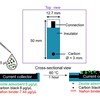
Adsorption-Based Electrochemical Sensor Design for the Aqueous Detection of Paracetamol @Advanced Engineering Materials
This study investigates the critical role of adsorption in the development…
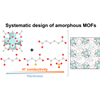
Systematic design and functionalisation of amorphous zirconium metal–organic frameworks @Chemical Science
Controlling the structure and functionality of crystalline metal–organic fr…

